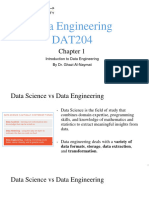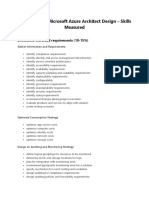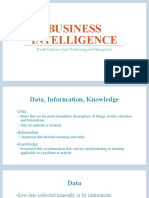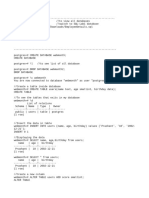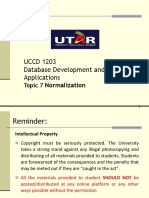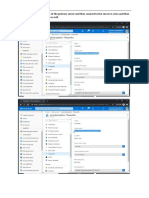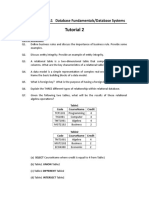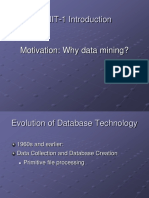0% found this document useful (0 votes)
17 views4 pagesSyllabus - Fundamentals of Data Engineering
The course 'Fundamentals of Data Engineering' is a 14-week program offering 3 credits, focusing on the essential concepts, tools, and practices in data engineering. Students will learn to design and maintain data pipelines, utilize SQL and Python for data manipulation, and understand cloud data platforms. The curriculum includes hands-on activities, assessments, and covers topics such as ETL processes, data modeling, and data quality best practices.
Uploaded by
Angelo FelicianoCopyright
© © All Rights Reserved
We take content rights seriously. If you suspect this is your content, claim it here.
Available Formats
Download as PDF, TXT or read online on Scribd
0% found this document useful (0 votes)
17 views4 pagesSyllabus - Fundamentals of Data Engineering
The course 'Fundamentals of Data Engineering' is a 14-week program offering 3 credits, focusing on the essential concepts, tools, and practices in data engineering. Students will learn to design and maintain data pipelines, utilize SQL and Python for data manipulation, and understand cloud data platforms. The curriculum includes hands-on activities, assessments, and covers topics such as ETL processes, data modeling, and data quality best practices.
Uploaded by
Angelo FelicianoCopyright
© © All Rights Reserved
We take content rights seriously. If you suspect this is your content, claim it here.
Available Formats
Download as PDF, TXT or read online on Scribd
/ 4



















































